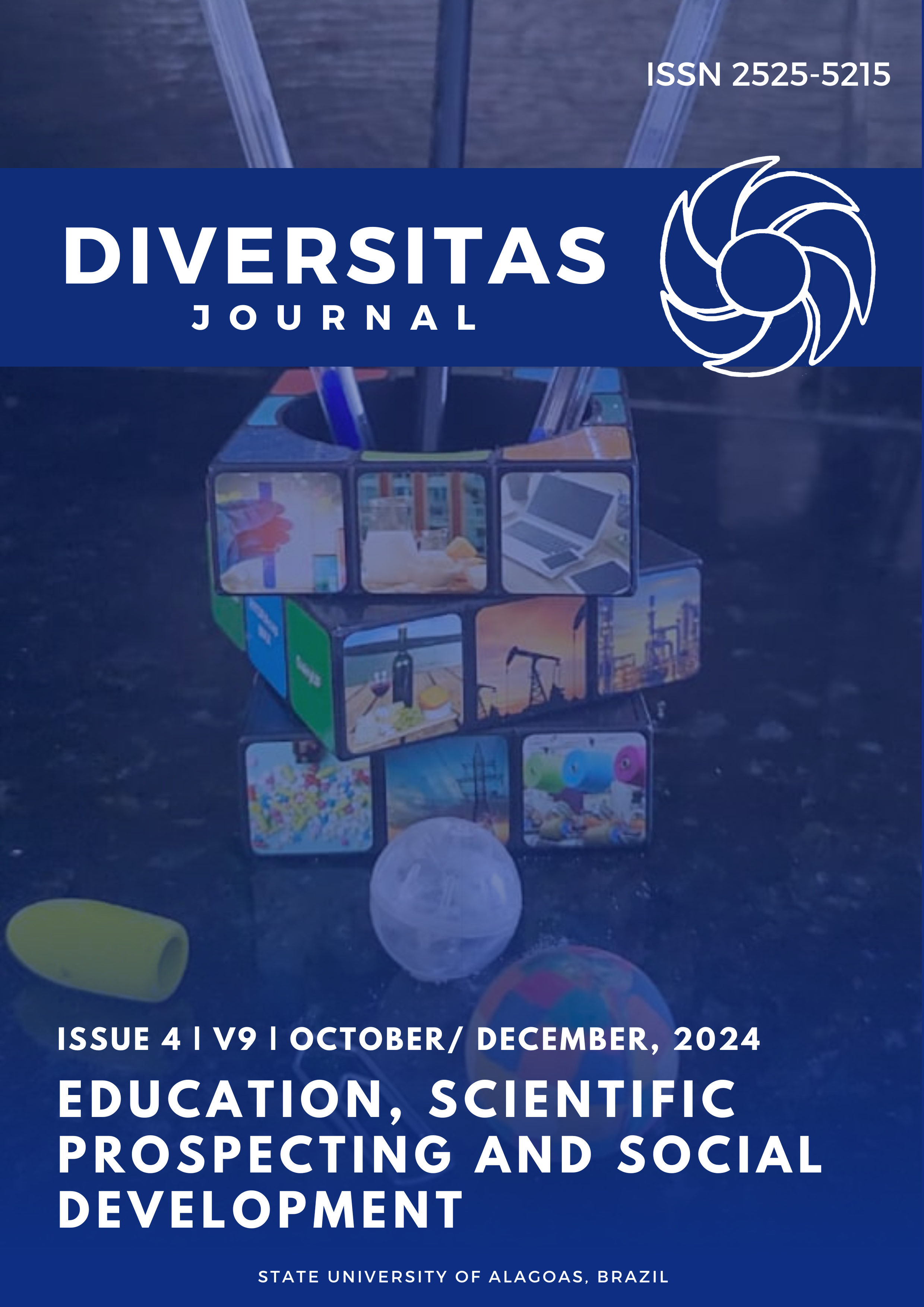Reflections of the Theory of Consumer Productive Deviation in the face of the most demanded companies at PROCON/AL., Brazil.
DOI:
https://doi.org/10.48017/dj.v9i4.3120Keywords:
Consumer law, injury to time, existential damageAbstract
The theory of consumer productive deviation proposes innovation with regard to the way in which consumers are compensated when a company necessarily wastes their time when trying to solve their consumption problems. The objective of this study was to explore what the effects of the theory are in the legal world and how it affects the consumer, especially in the State of Alagoas. To this end, a study was carried out with data collection through bibliographical research using doctrines, articles and data from research carried out by official bodies, thus adopting quantitative and qualitative approaches. It was found that the theory of productive deviation brings something new to consumer compensation for non-pecuniary damage, as it deals with loss of lost time as an independent damage that can be combined with common moral damage (damage relating to personality rights). In addition, the main problems that prevent consumers from seeking help to solve their consumer problems were presented and, according to the theory of productive diversion, the benefits in this regard are strictly punished by companies that neglect their rights or often purposefully make service difficult. Encourage the customer to stop trying to solve their consumption problem. Thus, the results presented as the theory of productive deviation has grown exponentially over the years, as well as its possible implementation in the Consumer Protection Code can change the behavior of some companies and, consequently, live up to the consumer's constitutional right to a effective service.
Metrics
References
BRISOLA, Pereira Cássio. (2016, 08,02). Dano moral nas relações de consumo. A função preventiva do dano moral no CDC. Obras Jurídicas - Reflexões de magistrados paulistas nos 25 anos do Código de Defesa do Consumidor, p. 261. https://epm.tjsp.jus.br/Publicacoes/ObrasJuridica/30611?pagina=1
Conselho Nacional de Justiça. Justiça em Números 2023. Brasília, CNJ, 2023, p.36. https://www.cnj.jus.br/wp-content/uploads/2023/08/justica-em-numeros-2023.pdf
Congresso Nacional. Matérias Legislativas > Matérias Bicamerais > PL 2856/2022. https://www.congressonacional.leg.br/materias/materias-bicamerais/-/ver/pl-2856-2022.
DESSAUNE, Marcos. Teoria aprofundada do desvio produtivo do consumidor: um panorama. Direito em Movimento, Rio de Janeiro, v. 17 - n. 1, p. 15-31, 1º sem. 2019.
DESSAUNE. Desvio Produtivo do Consumidor: o prejuízo do tempo desperdiçado e da vida
alterada. 2. ed. Vitória: Edição Especial do Autor, 2017. cap. 19.
DESSAUNE, Marcos. Entrevista (2022, 25,09). 'É necessário reconhecer que o tempo do consumidor é um bem jurídico essencial'. Site Consultor Jurídico, entrevista. https://www.conjur.com.br/2022-set-25/entrevista-marcos-dessaune-autor-teoria-desvio-produtivo/
MARQUES, Claudia Lima &. BERGSTEIN, Laís. (2016, 21, 12). 'Menosprezo planejado de deveres legais pelas empresas leva à indenização'. Site Consultor Jurídico, artigo. https://www.conjur.com.br/2016-dez-21/garantias-consumo-menosprezo-planejado-deveres-legais-pelas-empresas-leva-indenizacao/
NUNES, Maria Eduarda Martins Guedes (2023). A aplicabilidade da Teoria do Desvio Produtivo do Consumidor como incentivo à celeridade na resolução de conflitos consumeristas. (Trabalho de Conclusão de Curso, Universidade de Brasília Faculdade de Direito - FD/UnB). https://bdm.unb.br/bitstream/10483/35627/1/2023_MariaEduardaMartinsGuedesNunes_tcc.pdf
PENSADOR. O tempo é o único bem totalmente... Napoleão Bonaparte. Disponível em: https://www.pensador.com/frase/NjI5NDc5/.
PROCON/AL. (2023, 10, 08). Procon Maceió divulga ranking de empresas que lideraram número de reclamações em 2023; confira. https://www.cadaminuto.com.br/noticia/2024/01/02/procon-maceio-divulga-ranking-de-empresas-que-lideraram-numero-de-reclamacoes-em-2023-confira
ROSENVALD, Nelson (2005). Dignidade humana e boa-fé. (1ª ed.) Saraiva.
RECLAME AQUI. https://www.reclameaqui.com.br/
Superior Tribunal de Justiça (2019). Recurso Especial: 1737412/SE, relatora: ministra NANCY ANDRIGHI, Data de Julgamento: 05/02/2019, TERCEIRA TURMA, Data de Publicação: DJe 08/02/2019. https://www.jusbrasil.com.br/jurisprudencia/stj/673844404/inteiro-teor-673844419
TARTUCE, Flávio &. NEVES, Daniel Amorim Assumpção. Manual de Direito do Consumidor. (10ª edição). Método.
Tribunal de Justiça do Estado de São Paulo (2020). Apelação Cível nº 1046556-03.2019.8.26.0576, Comarca de São José do Rio Preto, 7ª Vara do Juizado Cível, Desembargador relator Alfredo Attié, J. 30.03.2020. https://www.jusbrasil.com.br/jurisprudencia/tj-sp/925238892
WEIDLE, Alice Touguinha (2015). O dano por desvio do tempo produtivo: uma nova espécie de dano extrapatromonial?. (Monografia de Pós Graduação, Universidade Federal do Rio Grande do Sul). https://lume.ufrgs.br/handle/10183/143328
Downloads
Published
How to Cite
Issue
Section
License
Copyright (c) 2024 Milena Karine da Silva Rodrigues, Ariane Loudemila Silva de Albuquerque

This work is licensed under a Creative Commons Attribution 4.0 International License.
The Diversitas Journal expresses that the articles are the sole responsibility of the Authors, who are familiar with Brazilian and international legislation.
Articles are peer-reviewed and care should be taken to warn of the possible incidence of plagiarism. However, plagiarism is an indisputable action by the authors.
The violation of copyright is a crime, provided for in article 184 of the Brazilian Penal Code: “Art. 184 Violating copyright and related rights: Penalty - detention, from 3 (three) months to 1 (one) year, or fine. § 1 If the violation consists of total or partial reproduction, for the purpose of direct or indirect profit, by any means or process, of intellectual work, interpretation, performance or phonogram, without the express authorization of the author, the performer, the producer , as the case may be, or whoever represents them: Penalty - imprisonment, from 2 (two) to 4 (four) years, and a fine. ”


















